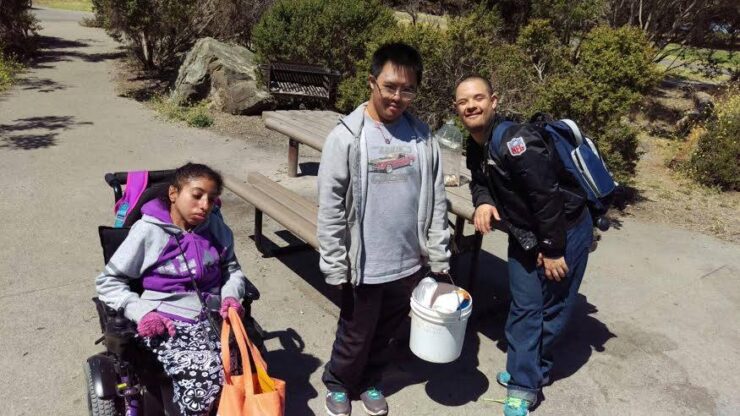As parents we might be determined to get our focused on textbooks and curriculum layout. However, if we think about our time in school, the only thing which used to get us excited for school was the fun part, the extra-curricular activities, and the time spent with our pals. The same goes for the children of all times. They are fond of after school activities, or extra-curricular activities. And many child psychologists as well as educationists have asserted focus on the significance of the after-school programs because they contribute major portion in a child’s education. They might not contribute to addition of knowledge in a direct manner, but they do help in character building, personality formation and enhancement of emotional intelligence.
Activities such as football games, school plays, student clubs, and other programs which bring pals together for a fun activity are the ones which are cherished and enjoyed by most of the kids. These activities have social as well as academic benefits for all children, including those with special needs. Such programs are even more important for children with special needs because they help in confidence building, and provide socialization opportunities for children with disabilities where they can work together, learn from each other, and build their relationships with their fellows.
Things You Must Consider Before Getting Started
1. Gauge Their Interests
It is important for every child to be engaged in extra-curricular activities. It is the responsibility of every parent as well as every school to provide such opportunities where children can participate in such activities. However, before getting your children listed in any kind of after-school program, it is important to consider your child’s interests and likes. Forcing them to join any program might add to their baggage of things they do forcefully. You can identify their interests easily. What are the things which make them smile, or light up their eyes? If you think your child is not sure how he feels about a specific idea, it is better to gauge their interest by giving them specific ideas and choices. This might take some time, but this can help you in identifying their choices and interests precisely, and you can find the best possible activity for them.
2. Consider their strengths and struggles
When dealing with children with special needs, it is critically important to consider your child’s strengths, and the things which cause difficulty for them. Many a time, an extra-curricular activity might fall into list of those activities which your child has difficulty dealing with. However, there will still be those programs which can actually help with your child’s difficulty area. For example, children with intellectual or developmental disabilities will find great help with scouting organizations.
3. Consider Your Child’s Emotions about a Specific Activity
For a smooth inclusion of your child into an after-school program, do consider your child’s feelings about new things. Many a time the idea of anything new rattles or confuses children. Therefore, counsel them and make the transition process smooth and easy. Tell them that trying new things is ok, and if they don’t like anything, the exit door is always there. Ensure them that if they want to move on to another activity, they can always do that. Children learn from taking chances and trying new things. This helps them grow and enrich intellectually.
Getting Started With After School Programs for Special Needs Children
The next step in getting your child successfully accommodated in an after-school program for special needs children is to look for the kinds of programs offered by the school. You might want to see which clubs, sports or plays they have so that you can send your children as per their age, strengths, and challenges. You can also explore various community activities available in the neighborhood. Local libraries, YMCA, or faith-based organizations come up with a wide range of extra-curricular activities for engaging children.
You can find a great deal of help from other parents who have special-needs children. They can assist you in finding the right program for your child because of their own experience with their child. Moreover, they can give an insight about upcoming challenges which could be a beneficial heads-up for you. You can make preparations for complexities and difficulties which can arise at the time of getting your child listed in after-school programs.
There is a lot of helpful material available with national organizations. You can consult with them to have accessible to the material for children with disabilities. For example, Girl Scouts of the USA, 4-H club, and various other organizations can provide significant help in this regard.
As Parents, Few Things to Keep in Mind
1. Communicate with School Staff
If a child with special needs participates in a school-sponsored after-school program or activity, it is of imperative significance to communicate with the school district staff. You can collaborate with school authorities to make sure that your child is supported for a successful engagement. It is important because you have a clear idea about your child’s abilities, and only you can tell the school authorities about your child’s strengths to make sure they provide engagement opportunities accordingly.
Of course, it will lead to successful results if the special-program leader is aware of your child’s unique strengths and struggle-areas. How to get your child react favorably for a certain activity, or how to overcome an undesired situation, and other such valuable information can only come from you as you know your child inside out.
2. Ensure Changes and Accommodations in tools and technologies
If you think you a child with special needs requires assistance or modifications regarding particular devices, tools or technologies, you must inform the program leader so that changes could be made accordingly. Or, if you believe your child has to be kept away from a specific technology or tool, as it can aggravate the condition, you must notify the authorities. Communication and collaboration is critical as programs offered by your child’s school might be required to offer things differently.
3. Bring Class teacher on-board
Adjustments and accommodations are not restricted to classroom learning. In an after school programs Oakland for special need children, you can take the child’s classroom teacher on-board. They can also assist in managing required accommodations and adjustments. To ensure the success of an engagement program, working as a team is for the best.
4. Talk to your child
While you have made changes in the environment, formed a team, do not forget to take your child’s feedback. Make sure to check with the child their understanding of a particular activity’s or program’s goals. To have them interested in a program or activity, make sure that he/she knows and follows certain rules, adheres to timetable, and delivers performance within time limit. If they are facing any challenges or problem, you can ask about those and request modifications accordingly. For example, a runner can perform better if there are visual aid cones on the track.
Ala Costa Center
If you need any assistance about Individualized Education Program (IEP) or guidance about after school programs for special needs children, get in touch with our team at Ala Costa Center. With experienced experts in the field, we can guide you about picking the right program, appropriate aids and services, and required modifications for engaging your child in extra-curricular activities.




























